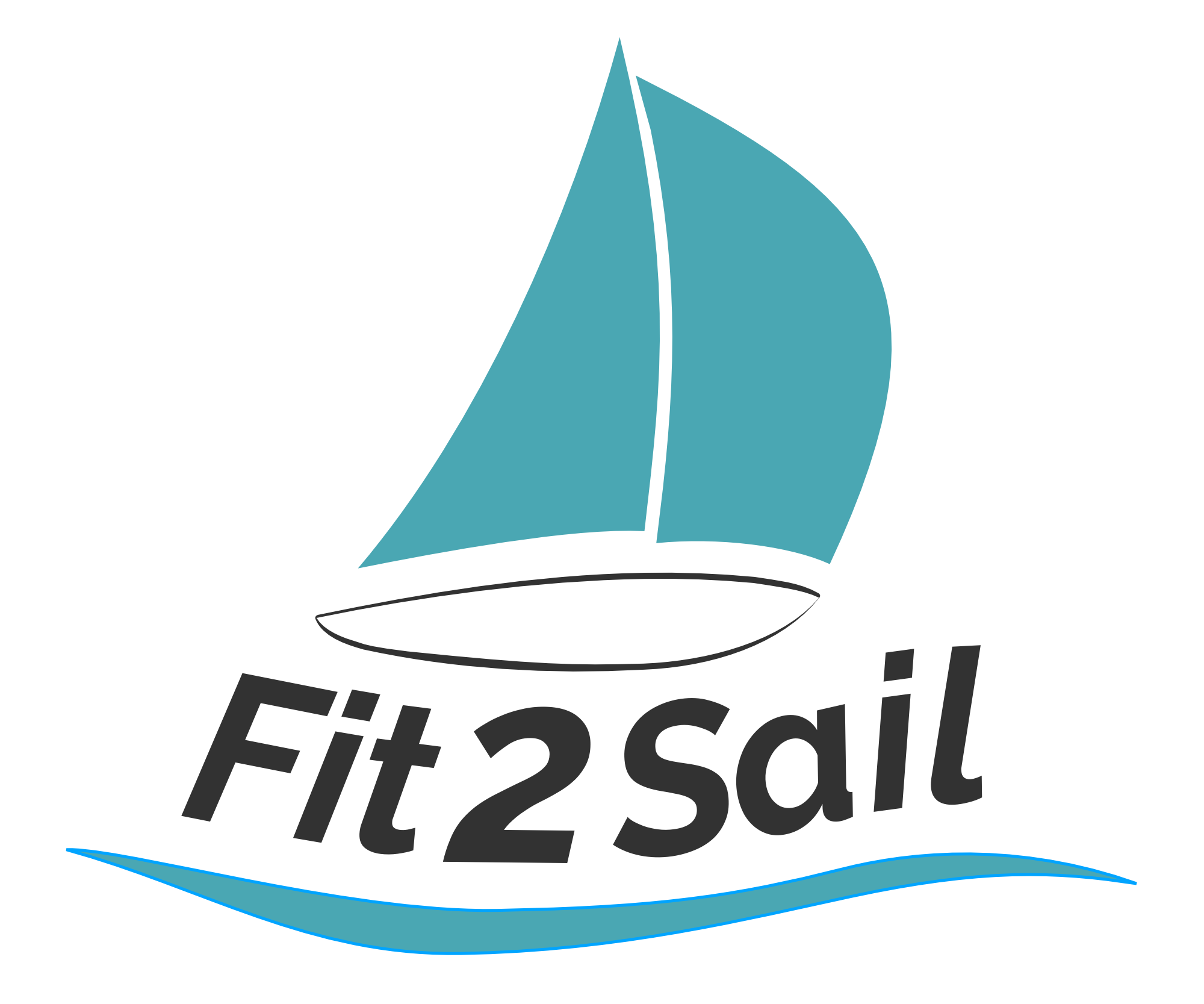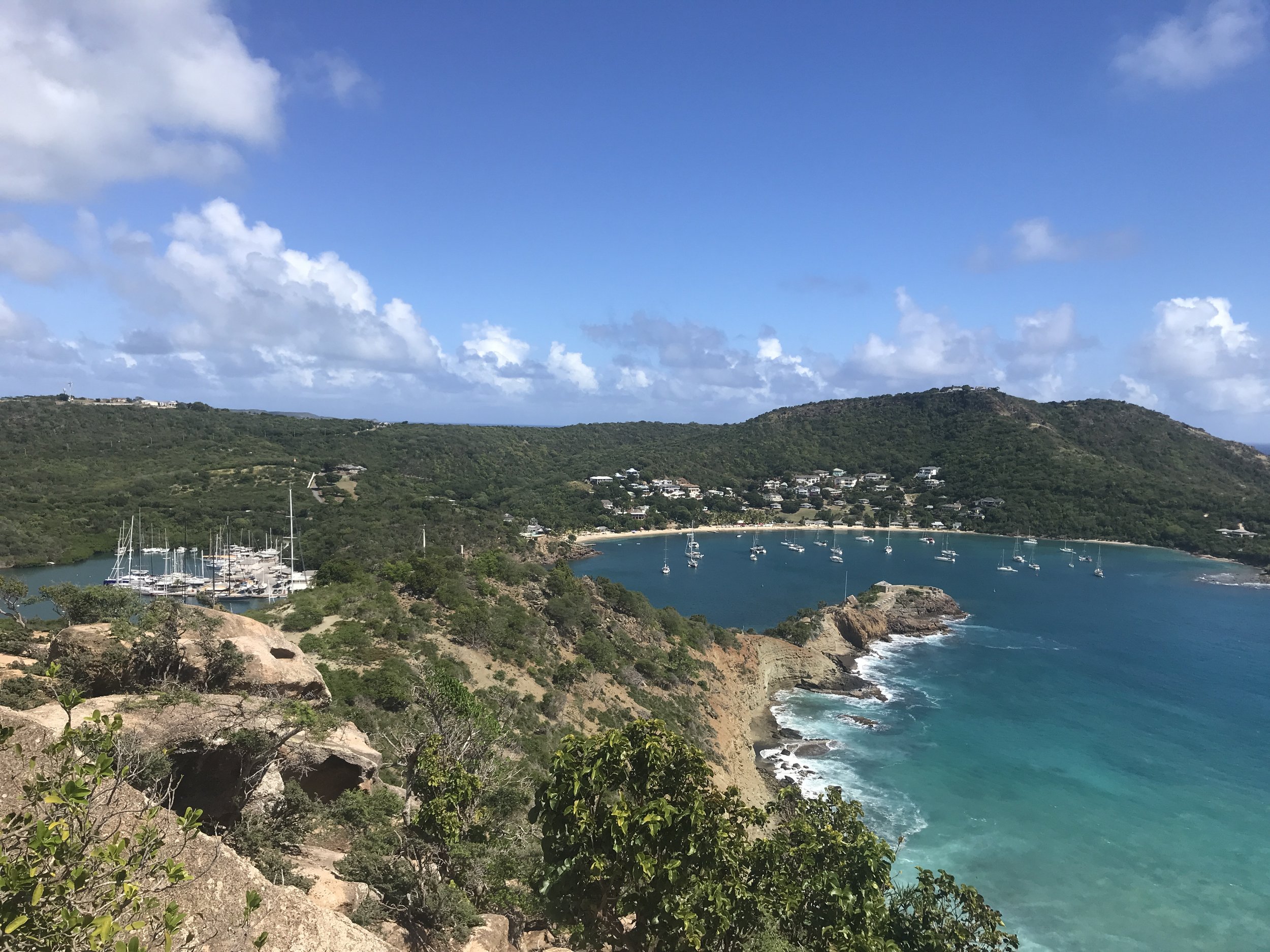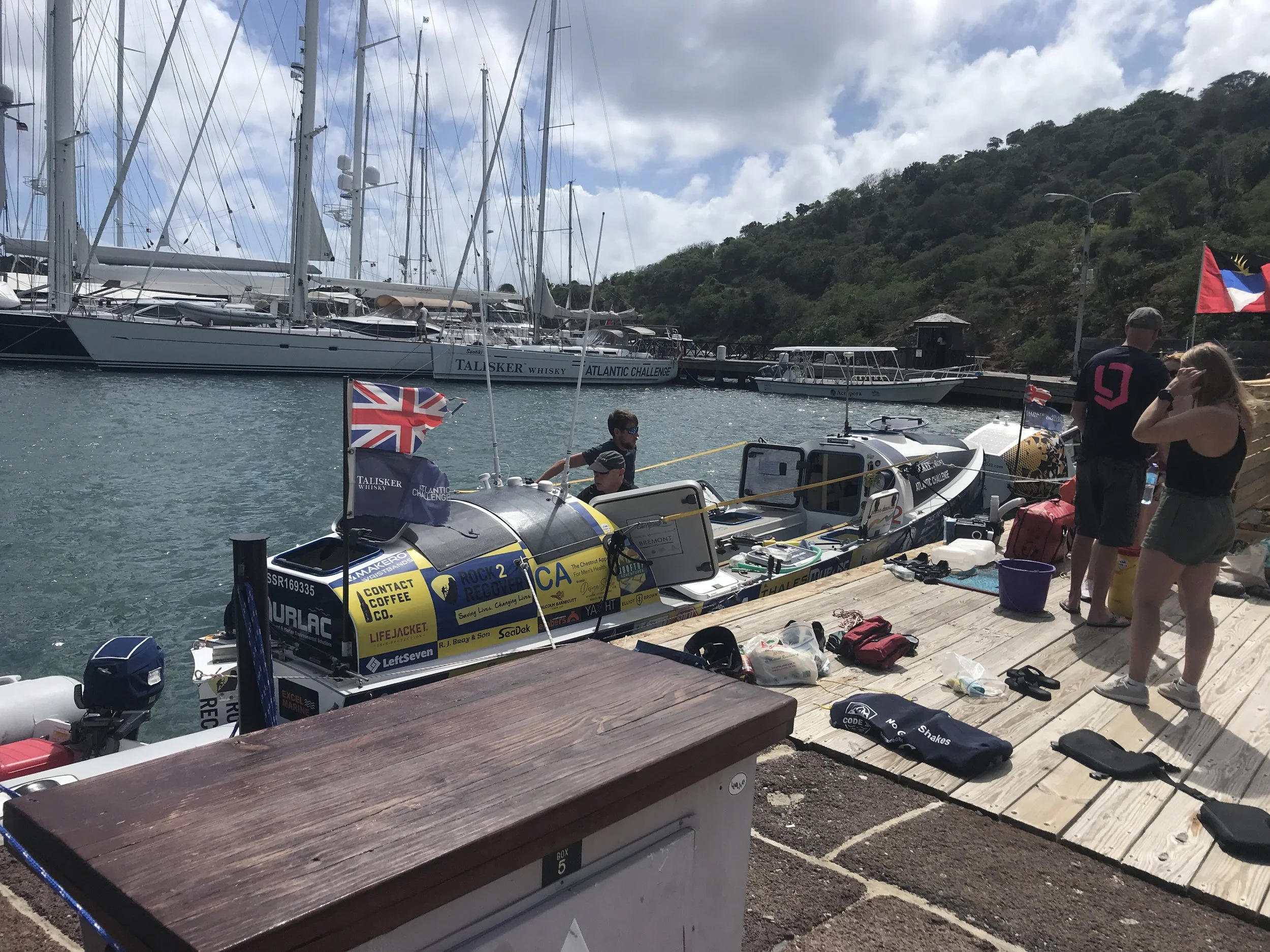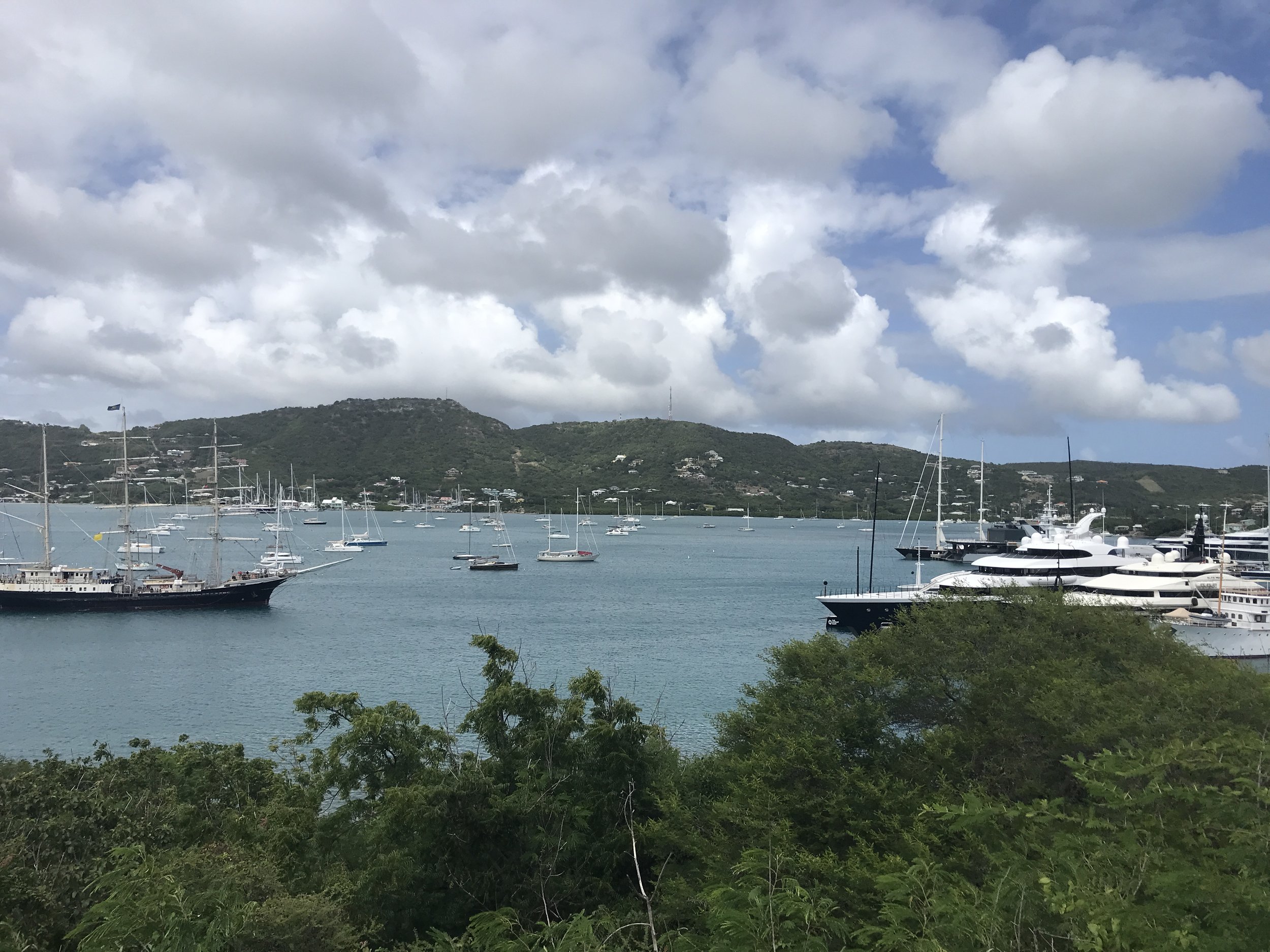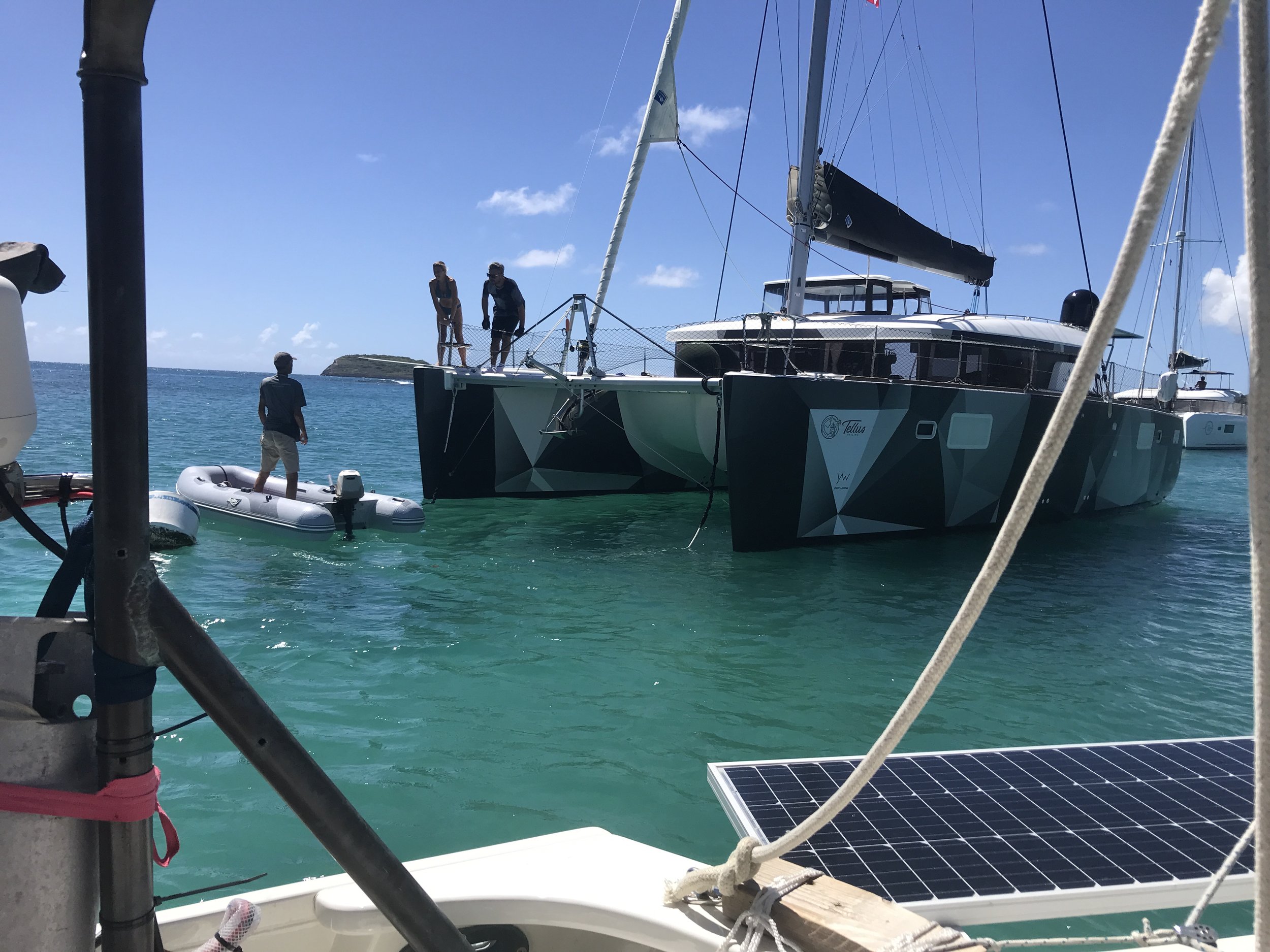Three Weeks in Antigua
Antigua. We finally made it to Antigua!
Jeremy’s photo is not exactly right - Jolly is a bit south of that.
We arrived to Jolly Harbour, on the southwest side, just before sunset after a pretty fabulous 75 mile sail over from St Barths, happy to drop the hook in a flat calm, shallow anchorage after a solid week of rolling. (Side note: we’ve determined that the new term is “metronoming”, since the masts look like metronomes in a rolly anchorage.) In the morning Jeremy took the dinghy in to clear customs and we were free to move about. Sounds good to us!
A few practicalities.
Currency: EC dollar, about 2.7:1
Language: English
VHF hailing station: 68
Formalities: very formal. They like their paperwork here - come with clearance papers from your previous port as well as electronic clearance in via EseaClear (not the SailClear site that is used everywhere else except the French islands). Clearance is with cash only, in EC, so best to try to trade money for EC with other cruisers before you arrive. If all you have is $ US, the exchange rate won’t be ideal.
Setting up the Q flag as we see Antigua in the background.
We had high hopes of being able to circumnavigate the island with a side jaunt to Barbuda, but unfortunately the piped-up trades had other plans. Still we managed to enjoy ourselves in a few different anchorages during our 20 days. Highlights? The Saturday market in St John. Hikes along the ridge between Falmouth and English Harbours. Green Island. The sailing.
Fresh markets are my favorite way to learn about a local culture, and if the market includes a ride on public transport so much the better. Saturday’s market in St John, the capital, was a glorious cacophony of every kind of stand and every kind of good imaginable. It stretched for blocks. We hopped the bus (#20) from Jolly Harbour directly to the capital (the bus system in Antigua is kind of a hub-and-spoke system, with all buses leading to and going out from the capital). Cost? EC3 per person each way.
Getting some fresh veggies at the Saturday market in St John
We didn’t have a ton of money with us, and were reluctant to go to an ATM with the sheer number of people around. This limited our purchases but we did come home with an Antigua pineapple to try. This was the first fresh market we’d really seen (there was a stand in Marigot) and the first island where there is some real produce grown locally. Prices are not really any better than in one of the grocery stores, but that’s not my main reason for hitting a fresh market anyway. Seeing what’s in season, seeing the people, understanding the ebb and flow of dialogue and community - it’s hard to imagine a more immersive experience.
After a few days in Jolly Harbour, we picked up the hook and sailed around the south side of the island to Falmouth, with a very rolly night in Carlisle Bay to break up the trip. This large harbour is separated from English Harbour (and Nelson’s Dockyard fame) by about a 5 minute walk over the “hill”, or you can get there a more roundabout way by hiking up the “Middle Ground” path that runs from Fort Berkeley on the English Harbour side to Pigeon Beach on the Falmouth Harbour side. Nelson’s Dockyard is a UNESCO World Heritage Site and is a pretty interesting working boatyard with historical significance. Friends of ours on a 46’ boat were docked here for a month in December; I’d have to imagine they were dwarfed by all the huge sailing ships. We saw some there that were well over 150’ long!
The outer and inner harbors at English from the ridge hike
One of the cool things about Antigua is the sort of central location. English Harbour is a stopping point for a lot of different races, including the Talisker Whiskey Atlantic Challenge. This is a ROWING race. Across the Atlantic. Starting on December 12. From Portsmouth, England. We saw one of the boats making its way along the base of the cliffs on one of our sailing afternoons; we also saw a couple of boats tied up at the Dockyard and spent some time talking to a couple of crews who had just arrived after 60 days at sea. The crew of 3 guys did a 2 hours on, 1 off for the entire time; the singlehanded woman chose to row for 15 hours straight and then get a 9 hour run of sleep, relying on lighter winds or her drogue to keep her from losing ground. (BTW she came in a day ahead of the team of 3 guys . . .) The record for this year’s crossing? 19 days.
Home sweet home for a month or two. Makes Calypso look like a palace!
Falmouth was a pretty busy spot, with big boats coming and going, lots of dinghy racing to entertain us, and many, many foil boarders. Jeremy has been eyeballing getting a kite surfing set up, but these wing foils are more practical as they take up less room but also can be used in lots of places; the kites look almost like parachutes with long guide lines whereas the wings are more like an overgrown windsurfer sail you hold over your head.
Find Calypso in the harbour - this is Falmouth!
Winds kept us in Falmouth way longer than we wanted and also precluded a jaunt up to Barbuda; both the sea state and the open roadstead nature of the anchorage up there didn’t sound like the trip or stay would be comfortable. We’re sorry to have missed the chance.
Fabulously fast sailing along Antigua!
We did, however, have a great sail to Green Island, a spot on the eastern side of the island that’s characterized by one larger anchorage protected by the off-lying reef. We anchored behind the reef one night, then tucked ourselves into a tiny little bay that had really only room for 1 boat. And then 2 large catamarans proceeded to join us in the bay!
Teeny tiny anchorage
Got any Grey Poupon?
Fronts have been making it down as far south as Guadeloupe this year, an unusual occurrence that means the winds and squalls have been fairly relentless. Finding decent weather to make a move has been challenging. We’re past the point of trying to make substantial eastward progress, thank goodness, but we’re not interested in massive seas on the beam as we go between islands. Because the next stop to the east is Africa . . . that’s a lot of water and time for the waves to build up.
Finally though there’s a break coming. Tomorrow we head for Guadeloupe, with Ile Des Saintes as the main focus. Baguettes and pain au chocolate, here we come!
